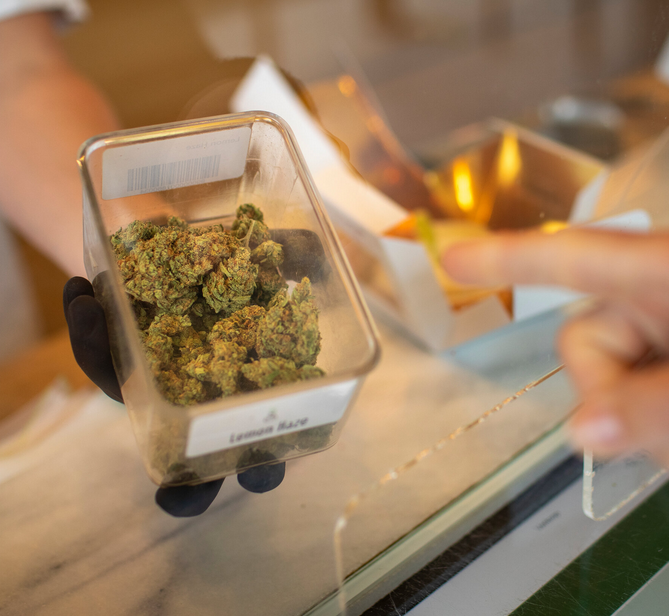Amsterdam’s Coffee Shops Face Uncertain Future as Tourist Restrictions Loom
The cannabis industry in Amsterdam is only just beginning to recover after the devastating lockdowns that cut off access to its main customer base—foreign tourists. Now, while some foreigners are once again allowed to visit the Netherlands, coffee shops remain unsure about their future. Locals have grown accustomed to quieter streets, and the city’s mayor is gaining political points by threatening to eradicate cannabis tourism. According to coffee shop employees, such a move would impact not just their businesses, but the entire city’s economy.
Tourism and Coffee Shops: An Amsterdam Staple
For years, Amsterdam has attracted millions of tourists from across Europe and beyond. Many come to enjoy the city’s architecture, canals, museums, and, of course, its world-famous coffee shops and open-minded sex industry. However, the so-called “city of sin” has changed since the start of the COVID-19 pandemic, with tourist numbers dropping sharply.
While locals enjoy being able to walk or bike through the city without dodging crowds of tourists, many Amsterdam businesses—especially coffee shops—feel left out. They also worry that authorities may soon introduce even more restrictions for their foreign customers.
The Cannabis Industry Struggles to Recover
“It’s definitely been a quiet year,” says Ben, an employee at Barney’s coffee shop. “Obviously, it’s better compared to last summer during the pandemic, but it’s still nothing like previous years. We only saw real tourists from France, some Germans, not many Brits, and hardly any Italians. Now that school holidays are over, I don’t think we’ll see many more visitors.”
Amsterdam’s tourism industry is still recovering and has a long way to go before reaching pre-pandemic levels. According to the Dutch Central Bureau of Statistics, in the second quarter of 2021, the turnover for hospitality and accommodation services increased by 52.6% compared to the same period in 2020. However, it remains 35% lower than in the second quarter of 2019.
Mike, customer relations and retail manager for the Green House coffee shop chain, says business picked up after restrictions were lifted, but it’s still not back to its peak. “The coffee shops in the center are open again,” he said. “It’s still quiet compared to normal years, but last month we started to gain momentum.” Mike added that their coffee shops have adapted to new rules, such as social distancing between tables and using outdoor terraces.
Mike noted that coffee shops “suffered greatly” during the 18 months of lockdowns. Initially, Dutch authorities announced that coffee shops would have to close immediately, but quickly reversed course after long lines formed outside. Officials suspected customers wanted to stock up on cannabis. After some consideration, authorities agreed that closing coffee shops could lead to illegal and unregulated street sales.
In the Netherlands, selling drugs is a criminal offense, while possession is an administrative one. However, authorities allow the sale and use of soft drugs (such as cannabis and mushrooms) in coffee and smart shops, provided all regulations are followed.
Despite being allowed to stay open, coffee shops had their hours reduced. The ban on international travel also meant that most of their customers—tourists—couldn’t visit. Restrictions for tourists were only partially lifted this summer. Entry is still banned for tourists from countries with poor epidemiological situations, and some visitors must follow PCR testing and quarantine rules, further discouraging travel.
Locals Divided on Cannabis Tourism
Over the past 18 months, the number of tourists has dropped significantly, which many locals welcomed after years of dealing with rowdy groups of foreigners. Otto, an economics teacher living in Amsterdam, says he enjoyed “getting our city center back” and no longer having to put up with “shouting and drunk” tourists.
He is not fond of foreign coffee shop customers: “Tourists who come here just to buy are not always pleasant company.” He added that Amsterdam has had problems with young tourists who “feel too confident because they can smoke weed legally, despite their young age.”
Lieke, an Amsterdam resident with a young daughter, also enjoys the quieter city. However, she doesn’t think coffee shops should be off-limits to tourists, because “they’ll buy it anyway, even if it’s illegal in their home countries.” She believes it’s wrong to discriminate against tourists based on their reasons for visiting.
Mayor’s Plan Could Backfire
The Dutch capital attracts a wide range of tourists—from groups of young people eager to visit coffee shops, to bachelor parties heading for De Wallen, the main red-light district. But the city also draws culture lovers who want to visit museums and stroll along the picturesque canals.
City officials seem eager to improve Amsterdam’s image by attracting more of the latter group. Mayor Femke Halsema is ready for radical changes and has even suggested closing key attractions—coffee shops and the red-light district—to so-called “sin tourists.”
Unsurprisingly, coffee shops are unimpressed by the mayor’s proposals. “They’re going to shoot themselves in the foot if they do this—it’s not a good idea at all,” Ben says. “They’ll lose half the atmosphere Amsterdam has had for the last 20 years. It’s not just coffee shops that will suffer, but also hotels, fast food restaurants, everything.”
Similarly, Mike called the proposals to ban foreign tourists “ridiculous” and said they would “lead to a huge drop in tourism” in Amsterdam. “I think the focus on tourists who come here and visit coffee shops is wrong, because almost everyone who comes to Amsterdam wants to visit a coffee shop at some point, even if it’s just for coffee,” Mike continues. “They just want to experience it, and if you go into one of our coffee shops, it’s not just young British people who are drunk. In fact, most people who smoke don’t even drink.”
Mike also added that in the past 10 years, cannabis culture has changed a lot, and now people of all ages—from 20 to 70—visit their coffee shops. Even people in business suits come in just to relax for half an hour after work.



